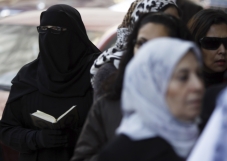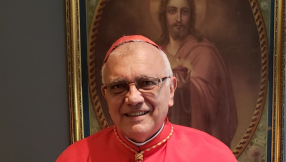An Egyptian Coptic Christian has been proven innocent after having served more than half his six year sentence for defamation of Islam, according to World Watch Monitor (WWM).
Bishoy Kameel Garas was jailed in September 2012 for charges including defamation of Islam related to Facebook posts by a fake account opened in his name.
His offences included offending Islam, the then-President Mohamed Morsi, and a Muslim sheikh's sister.
Cairo's senior court ruled against the prison sentence on July 25, 2015, but Garas remained in prison until October 9, due to "intransigence by the prosecution, and prison authorities dragging their feet", his lawyer Magdy Farouk told WWM.
It was not until five months later, March 13, that the higher court ruled him innocent.
Despite having been officially cleared on all counts, experts say Garas cannot hope to receive adequate compensation.
"The defendant will have his three years in jail as credit, to be debited in case he's sentenced for any future offences," said Safwat Samaan, director of Nation Without Borders, a human rights advocacy group.
Garas, who was a teacher, had used his personal Facebook account to warn about the fake account and alerted cyber police, but he was still sentenced.
"Instead of investigating the hacking, which Garas insisted was done out of malice by a certain 'Michael' (now in Italy), the prosecutor said, 'Bishoy is as good as Michael!'," said Mena Thabet, a religious liberties researcher with the Egyptian Commission for Rights and Freedoms.
The names Bishoy and Michael are easily identifiable as Christian in Egypt.
"The judge would not hear the difference between one's own genuine Facebook page and a page created by another assuming a false identity," said Samaan.
"To be accused of defamation [of Islam] is to be guilty of it, especially with the mob pressure and rioting accompanying the proceedings," he added.
There have been nine cases of "defamation of religion" filed in Egyptian courts since January 2015, according to the Egyptian Initiative for Personal Rights. Twelve people have been convicted and twelve more cases are pending.














